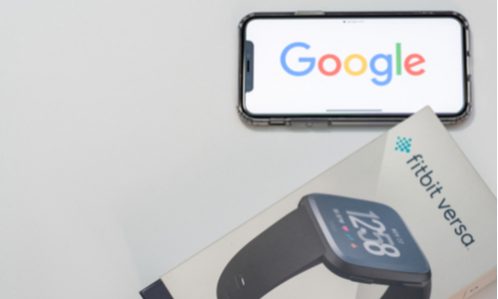
By: Pierre Regibeau (Vox)
On 15 December 2020, the European Commission approved the acquisition of Fitbit by Alphabet, subject to a number of commitments (European Commission 2020). Once a leader in the design and production of fitness trackers, Fitbit had seen its worldwide market share of the overall smartwatch segment fall to between 5% and 10% and was for sale. By acquiring Fitbit, Google would get access to the company’s product, data about the health and health habits of Fitbit users, and Fitbit’s expertise in designing efficient sensor technology for digital wear.
This case caused considerable agitation among some academic and policy circles and led to a number of contributions pressing the Commission to block the transaction (Caffarra and Valletti 2020, Bria et al. 2020, Caffarra and Crawford 2020, Privacy International 2019). The image conveyed by these contributions is apocalyptic: access to Fitbit data would help Google further dominate the market for online advertising and the synergies between these data and the data that Google already holds would ensure its eventual dominance in digital health. This would have dire consequences for privacy. Finally, the acquisition would reduce Google’s incentives to keep its Android ecosystem open to rival wearable products.
I believe that the discussion should now move from the realm of speculation to the sphere of evidence. It is in this spirit that I would like to explain why I find the Commission’s decision fully appropriate. What follows is my own, simplified, view of the economics of the case, stripped of its jargon, legal strappings and subtleties.
The role and standards of merger review
Merger review is meant to ensure that mergers and acquisitions do not hurt consumers by increasing prices, decreasing quality, limiting variety or dampening innovation. These potential harmful effects are evaluated by comparing the post-merger situation to the counterfactual, i.e. to the situation that would have prevailed without the merger…
Featured News
Big Tech Braces for Potential Changes Under a Second Trump Presidency
Nov 6, 2024 by
CPI
Trump’s Potential Shift in US Antitrust Policy Raises Questions for Big Tech and Mergers
Nov 6, 2024 by
CPI
EU Set to Fine Apple in First Major Enforcement of Digital Markets Act
Nov 5, 2024 by
CPI
Six Indicted in Federal Bid-Rigging Schemes Involving Government IT Contracts
Nov 5, 2024 by
CPI
Ireland Secures First €3 Billion Apple Tax Payment, Boosting Exchequer Funds
Nov 5, 2024 by
CPI
Antitrust Mix by CPI
Antitrust Chronicle® – Remedies Revisited
Oct 30, 2024 by
CPI
Fixing the Fix: Updating Policy on Merger Remedies
Oct 30, 2024 by
CPI
Methodology Matters: The 2017 FTC Remedies Study
Oct 30, 2024 by
CPI
U.S. v. AT&T: Five Lessons for Vertical Merger Enforcement
Oct 30, 2024 by
CPI
The Search for Antitrust Remedies in Tech Leads Beyond Antitrust
Oct 30, 2024 by
CPI